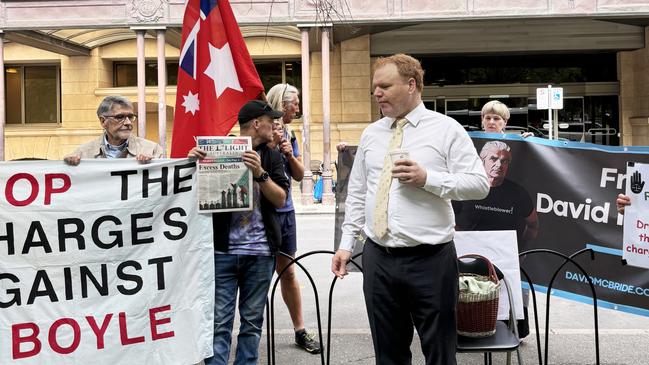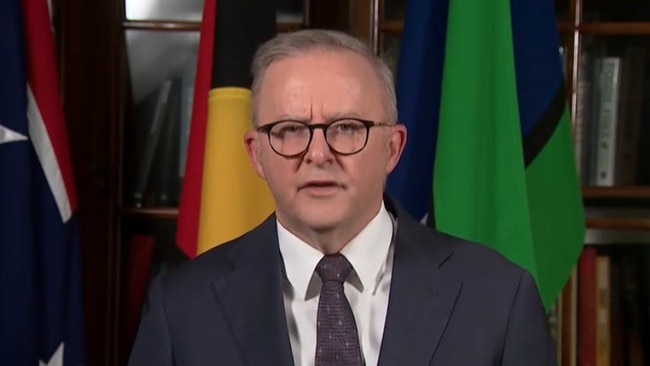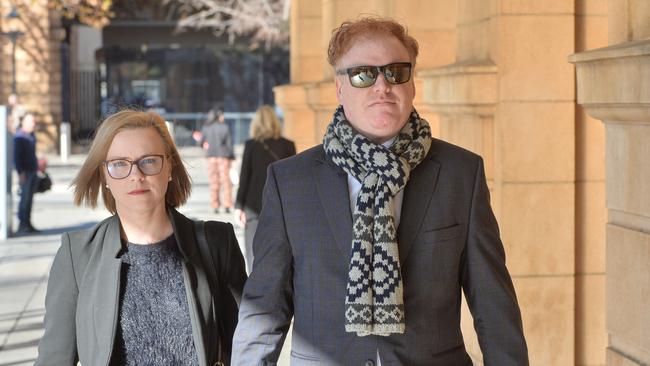
As Australian federal politicians review their performance in 2024, arguably, every single one of them should consider hanging their head in shame.
And journalists operating on the national stage must share part of the shame.
Australian politicians who preached to overseas politicians claiming those overseas politicians were engaged in bad practices must not repeat their 2024 statements in 2025 until our shame is reversed.
This year I was honoured with a Walkley Award. To the great credit of the organisers of the presentation ceremony, the Australian journalistic shame was highlighted when Richard Boyle was invited to address those attending the function.
The story of Richard Boyle is surely one of the most shameful in the nation’s history.
It is a classic case of politicians from both major parties succumbing to public service pressure to punish people who tell the truth about horrendous public service actions.
And there is a global context to what happened in Australia.
The overwhelming vote of US voters to install Donald Trump as President sends a clear message ordinary Americans are frustrated with voting into power politicians who, on gaining power, are swamped by public service ideas and policies.
In Australia all too often our politicians also succumb to public service agendas which are often not in the national interest. The Richard Boyle affair is a classic example.
Some eight years ago, as a tax office employee, Richard saw his department undertake dastardly actions to unfairly harm small business in Australia.
He alerted his superiors but they ignored him.
Boyle knew the actions of the ATO were wrong so, in the national interest, he became a whistleblower and when his revelations were confirmed as accurate by independent investigators they caused parts of the Australian Taxation Office to change their mode of action — to the benefit of small business and the nation.
Boyle undertook more reform of small business taxation than both the Coalition and the ALP when they were in power.

Coalition politicians were completely swamped by the ATO, who believe telling the truth about the ATO a heinous crime.
Coalition politicians had made all sorts of promises about disclosure and help for small business. But, under public service pressure they caved in and a whole series of charges were
devised.
Under Coalition policy, if convicted, Boyle could be jailed for the “term of his natural life”. Naturally, the courts will decide guilt or innocence on the basis of the law.
But, in senior public service eyes telling the truth is a dastardly crime. Boyle had to be punished.
They saw no value reforming the public service while improving Australian productivity and family businesses.
Then the ALP came into power. They differentiated their policies from the Coalition and promised to have proper whistleblower protection laws. There was much enthusiasm about the government change.
But, their rhetoric was translated into actions which amounted to little more than a row of beans.
It was yet another illustration of the complete futility of politicians making promises public servants do not like. The public servants were adamant truth-telling must be stopped. It was more serious than murder, robbery or being a drug mule.
The ALP could claim they were much fairer on Boyle than the Coalition.
After all, they cut down the maximum sentence from “the term of his natural life” to around 40 years. The ALP might argue they had delivered on their promise to help whistleblowers — but, there is a big difference between serving all your life without parole to having the sentence commuted to, say, 40 years.
Some public servants appeared to have studied the old pre-sentence actions in the Tower of London and discovered pre-sentence-style torture can be very effective in spreading the word to stop others telling the truth.
And so for the last eight years Boyle has been prevented from earning money and put it in a constant state of uncertainty as to how long he would be required to spend in jail.
He confessed to the journalists at the Walkley awards ceremony public servants and politicians had been successful — he was “broken”.
The word “broken” has particular meaning to those who have suffered emotional strain and is akin to the impact of a torture rack.
In my Walkley Award acceptance speech I confessed to accepting part of the blame for the torture imposed on Boyle for telling the truth.
What I should have said was we need a Trump/Musk style leader who will clean out the garbage in the Australian Taxation Office (not everyone) and replace them with people with a better sense of right and wrong.
Ethical politicians in all parties, including crossbenchers, should not pass legislation until the Boyle case is dropped.
We also need proper reform of the ATO so the heroic efforts of Boyle are not in vain. Tomorrow, I will set out a basis of ATO reform.
The Boyle saga
In 2017 Richard Boyle and other tax collection officers in Adelaide were instructed to ganache small business bank accounts irrespective of the circumstances.
Boyle protested to his superiors, but his protests were ignored (a later Senate inquiry revealed Boyle’s complaints had not been properly investigated).
During 2017-18 a number of commentators, including myself, were unaware of the Boyle situation but were highly critical of a wide range of ATO actions against family business.
In 2018 in an ATO Four Corners investigation headed by Adele Ferguson, Boyle revealed the ATO actions and their devastating impact on South Australian family business.

Later investigation by the Inspector General of Taxation vindicated Boyle’s revelations.
The actions of Boyle have been agreed by most as a perfect example of whistleblowing for the community benefit.
But, public service legal officers discovered Boyle had taken photos of tax records and uploaded them. He recorded conversations with colleagues. This material was not part of the whistleblower revelations, but was successfully used in the courts by the public service legal team as a way of circumventing the protections in the whistleblower act.
Boyle will be charged under the act for the telephone conversations and photographing.
The trial will take place late next year — more than eight years after Boyle warned the ATO of its bad practices.
The public service will spend vast sums on the trial. Boyle will testify alone and faces more than 40 years jail.
Until the act is changed, truth-telling by public service whistleblowers is effectively blocked — exactly what the public servants aimed to achieve.





